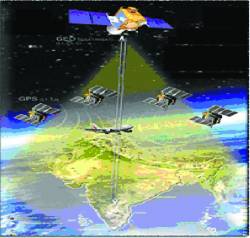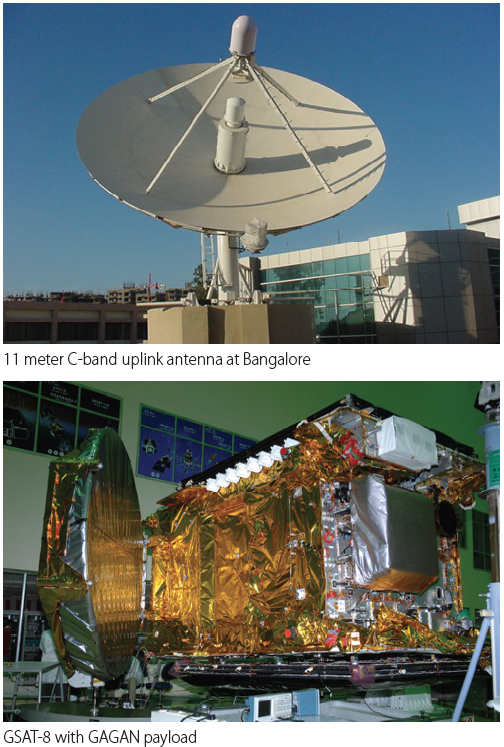
The Raytheon Company has announced that it successfully completed the final system acceptance test to augment standard GPS signals over India.
GAGAN stands for GPS Aided GEO Augmented Navigation-Technology Demonstration System. It monitors GPS satellite signals for errors and then generates correction messages to improve positioning accuracy for users.
The Raytheon Company has announced that it successfully completed the final system acceptance test to augment standard GPS signals over India.
GAGAN stands for GPS Aided GEO Augmented Navigation-Technology Demonstration System. It monitors GPS satellite signals for errors and then generates correction messages to improve positioning accuracy for users.
The system also augments standard GPS signals to support international and domestic flights during approach, at the terminal and on the ground. The process enhances the accuracy and integrity of flight navigation aids.
The latest test, conducted late in 2007, demonstrated that ground elements could successfully integrate with a geosynchronous satellite over India and generate a test signal that conformed to international requirements for the Indian flight information region.
The test also demonstrated that the time from signal generation to transmission to the satellite and reception back on the ground was less than the 6.2-second requirement.
After this test, the company said that the Indian Space Research Organization and Airports Authority of India would begin expanding the existing ground network, add redundancy, and produce the certification analysis and documentation for safety-of-flight commissioning.
Similar satellite-based GPS augmentation systems include the Wide Area Augmentation System (WAAS) in North America, the European Geostationary Navigation Overlay Service (EGNOS) and the MTSAT-based Satellite Augmentation system (MSAS) in Japan.



